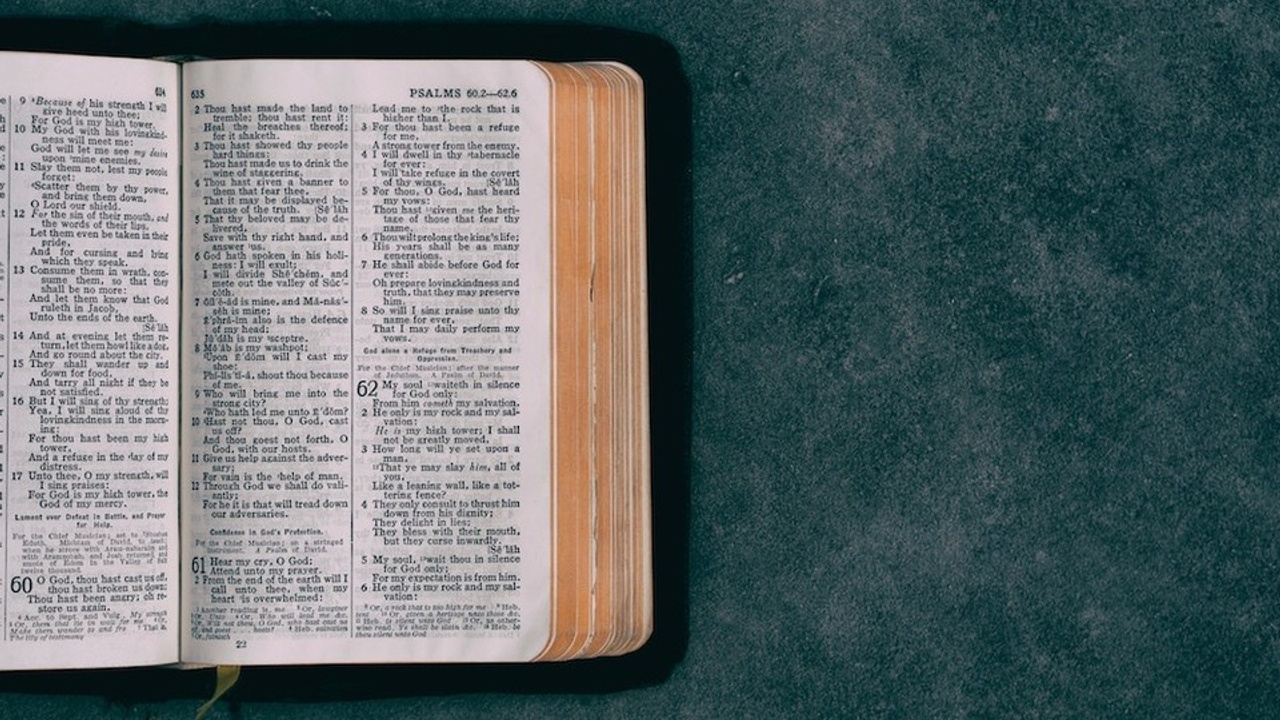Don’t Miss this Daily Double
Oct 07, 2020
When I hear the phrase Give me a double, I don’t think of alcohol. I think of my buddy Mark.
No matter which restaurant, no matter the type of food, no matter the time of day, he always ordered a double. If it was breakfast, he’d order double bacon. If it was lunch at a local Mexican place, he’d always ask the waiter for an extra cup of salsa. At dinner, it was, “Can you bring me double ranch dressing, please?”
His mindset was, “If something is good, I might as well have double.” That was 20 years ago and I’m pretty sure he kicked that habit. While that rationale may not be good in every area of life (including food), it’s certainly been effective in my life regarding the Scriptures.
Here’s what I mean.
For more than 40 years, my “daily double” is reading a psalm and a proverb every day. Psalms and Proverbs are two books of the Bible that are essentially ancient Jewish poetry—that is just their literary classification. They are just as inspired as all the other books of the Bible.
Psalms
Psalms is a set of 150 poems—some short and some long, some clear and some confusing, some celebratory and some grief-stricken. The 16th century European pastor John Calvin described Psalms as “the anatomy of all parts of the soul.” When reading the Book of Psalms, every corner of the soul—every emotion, every desire, every hope, every fear—will be touched at some point.
It’s not simply about self-discovery, though. To a large degree, the psalms speak about my vertical relationship, that is, the relationship that I have with God. How am I to see myself in relationship to Him?
For example, here’s the opening line from a few of the psalms.
- “The Lord is my shepherd, I shall not want.”—Psalm 23
- “Have mercy on me, O God”—Psalm 51
- “Unless the Lord builds the house, the builders labor in vain.”—Psalm 127
- “You have searched me, O Lord, and you know me.”—Psalm 139
- “Praise the Lord.”—Psalm 150
At least one of these speaks to where your heart is today, and each speaks to ways in which we relate to God. And that’s just the opening line of the psalms that I mentioned. And that’s just five of the 150 psalms!
The psalms can give me language for my relationship with God.
I need all the help I can get sorting out my thoughts about God. Without the steady input of the Scriptures, my view of God will be shaped by the movies I watch, the music I listen to, and the personal experiences I have.
Proverbs
If the psalms speak largely about my vertical relationship with God, the proverbs speak mostly about my horizontal relationship with others.
Twenty-five years ago, I wrote a short piece introducing the Book of Proverbs and titled it “Practical Instruction for the Daily Grind of Work.”
Proverbs is just that. Practical. Instruction. Daily. Grind. Work. And that includes the work of relationships.
Here’s a few examples:
- “Listen, my son, to your father’s instruction and do not forsake your mother’s teaching.”—1:8
- “All hard work leads to a profit but mere talk leads to poverty.”—14:23
- “Whoever oppresses the poor shows contempt for his Maker.”—14:31
- “Do you see a man wise in his own eyes? There is more hope for a fool than for him.”—26:12
Now let me be clear. Proverbs are not a set of guarantees on how life works. Not all instruction from fathers is good, after all. In some ways, Proverbs can be a bit of a puzzle. But at their core, the proverbs are simply statements of how the world God designed usually works.
I also need all the help I can get sorting out my thoughts about my relationships with others, with my work, and with my other concerns. And I don’t think I’m the only one in that camp.
Conclusion
This practice of reading a psalm and a proverb a day has been wildly beneficial to me over the years. It is something like a deep breath at the beginning, middle or end of the day. It is a chance to slow down, to inhale by seeing my relationship to God, and to exhale by considering how that impacts my relationships with others.
And like the doctor says about deep breaths, “And again. And again. And again.”
Sometimes I’ll switch up the translation of the Bible that I use. Sometimes I read out loud. Sometimes I use a Bible commentary on Psalms or Proverbs and read what others have said about the passage.
I vary the pace sometimes, too. A proverb a day gets you through the whole book in a month. If you pair that with five psalms a day, you can read through both books every month.
I’ll also add that some weeks I do better than others, and some years I do better than others. But whenever I do this reading, it is shaping my heart and mind.
A.W. Tozer said, “What comes into our minds when we think about God is the most important thing about us.” For most of us, though, what comes into our mind when we think about God is more influenced by pop culture, whether that’s country music, the local Christian radio station, or the latest NetFlix series than by what’s actually in the Bible.
Psalms and Proverbs point us to who God really is and the impact that has on our life and relationships—with Him and with others.
So get going on a “daily double.”
Want to receive Steve's articles in your inbox?
Join 14,000+ leaders who start their week with clarity. Every Tuesday, strategist and advisor Steve Graves shares short, practical reflections from 30+ years guiding CEOs, founders, and entrepreneurs toward flourishing in both business and life.
Free weekly email. Unsubscribe anytime.

